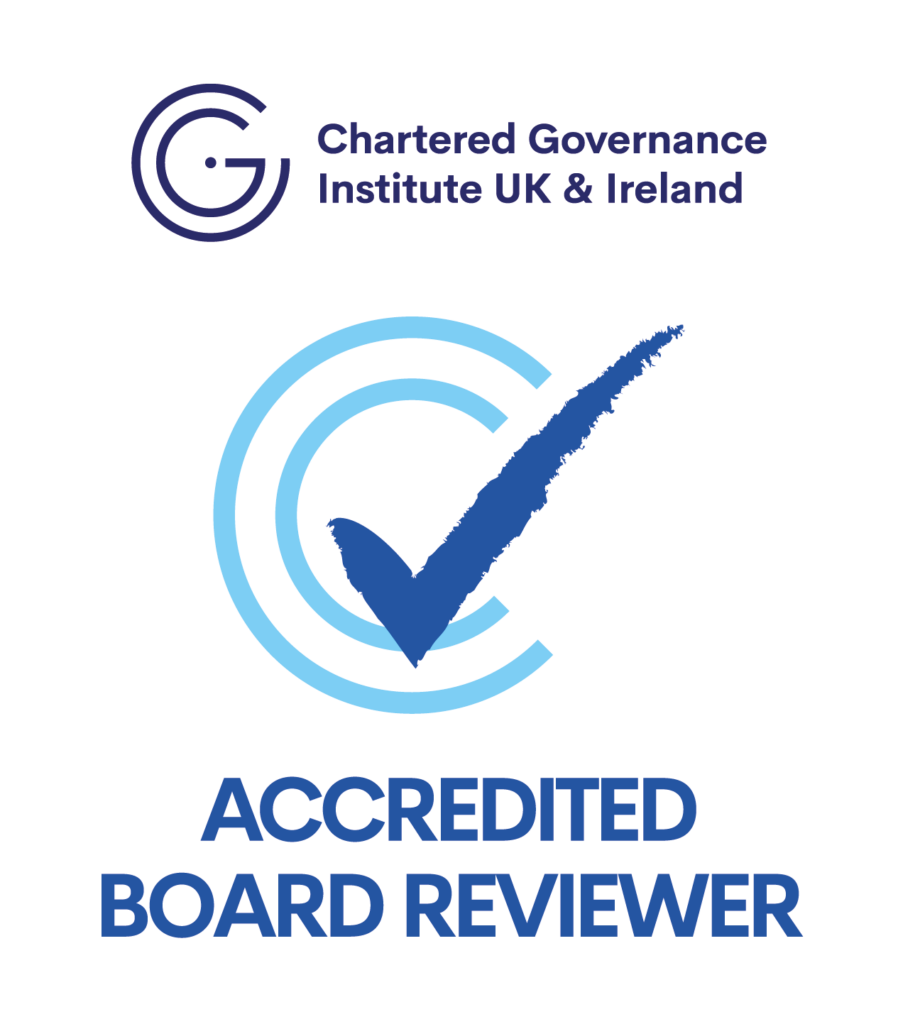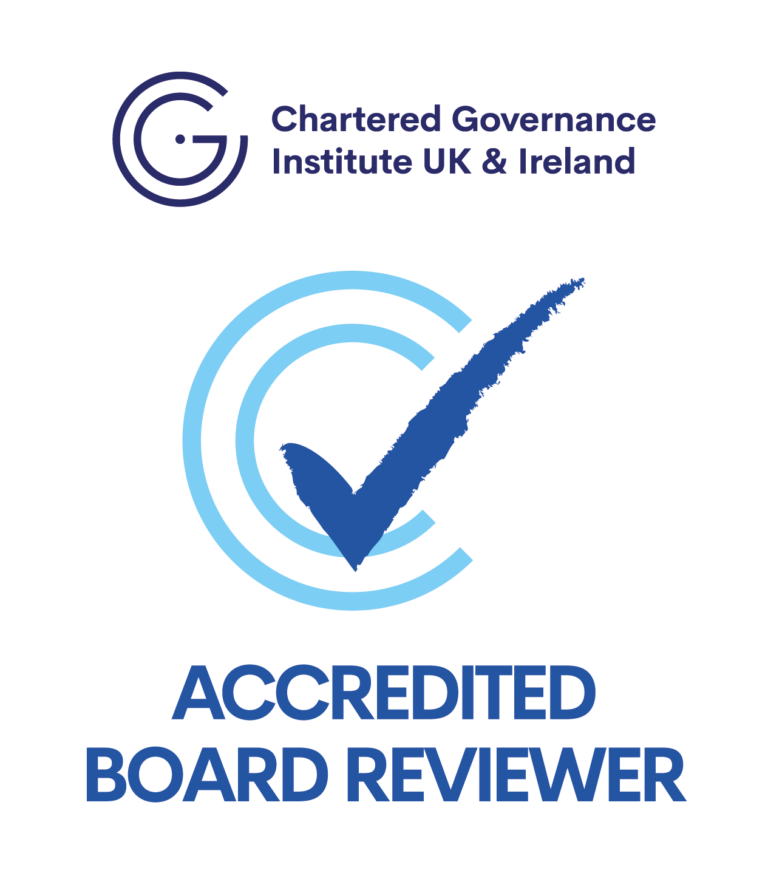Are your board reviews providing you with the right insights? Have you ever wondered why some board performance reviews drive meaningful change while others feel like mere box-ticking exercises?
Discover the five key elements behind truly effective board performance reviews. These five key elements will transform reviews into powerful tools to boost board efficiency, identify composition gaps, and enhance management oversight.
Read on to discover how to leverage reviews for real, impactful change.
5 Key Elements of an Effective Board Performance Review
Board and committee reviews are pivotal in unlocking a board’s full potential. When conducted properly, these reviews offer real insights into directors’ ability to collaborate effectively and how well a board operates as a cohesive unit. For performance reviews to be truly valuable, they need to include both quantitative and qualitative elements to provide actionable results.
There are five key elements of a board performance review. Your board can use these to become more efficient, identify gaps in composition, and enhance its oversight of management.
A robust review framework is a valuable tool for providing constructive feedback and fostering continuous improvement within your board. Unfortunately, many directors view these reviews as routine check-the-box tasks, hindering openness and honesty and missing out on the incredible value they can provide.
So, what makes a board review truly effective? How are smart boards using these reviews to sharpen their performance, spot gaps, and boost their governance? Read on as we uncover the fundamentals of board reviews and show you how to make the most of this powerful tool for driving real change.
1. Setting Objectives and Scope for the Performance Review
The primary objective of a board performance review is to enhance the overall effectiveness and efficiency of the board. To achieve this, directors need to have a clear understanding of what they aim to address in the review process.
Some of the most common areas of focus include:
Evaluating Board Composition
The composition of the board is absolutely critical. A well-composed board isn’t just nice to have; it’s essential for effective governance! Boards need a dynamic mix of skills, expertise, and experience to effectively oversee the company. This means evaluating whether the board has the right blend of professional backgrounds, industry expertise, and diversity in gender, ethnicity, and more.
Understanding any gaps is the first step toward ensuring optimal board composition. By regularly reviewing who’s at the table, boards can spot where they’re lacking and recruit new members who bring fresh perspectives and necessary competencies. This isn’t just about plugging holes, either. It’s about enhancing the board’s ability to make well-informed decisions, anticipate and tackle challenges head-on, and foster innovation.
Moreover, assessing board composition provides a prime opportunity to address any director underperformance. If someone’s not pulling their weight, this process highlights it and offers a perspective on where changes might be needed. Ensuring diverse and skilled membership is a game-changer for a board’s effectiveness and, by extension, the organisation’s success.
Setting and Managing Board Culture
Board reviews are a fantastic opportunity to understand the nuances of the board’s culture and dynamics. Ever wondered if your board encourages open discussion and healthy disagreement? Or if it promotes continuous improvement, open feedback, and mentorship? A productive board culture doesn’t just happen by chance; it’s something that needs careful nurturing and regular check-ins.
Board culture significantly impacts how effectively a board functions. During a review, it’s crucial to examine the dynamics within the boardroom. Are the members interacting, communicating, and collaborating effectively? A positive and productive board culture is marked by open dialogue, mutual respect, and constructive debate. It should also promote ethical behaviour and accountability.
By evaluating these aspects, you can determine whether the board’s values, norms, and behaviours align with the organisation’s mission and goals. Let’s not forget the importance of preventing a few directors from dominating discussions, which can stifle other points of view.
Understanding and managing board culture is key to creating an environment that supports effective governance and decision-making.
Improving Board Practices
Board performance reviews are not about pointing fingers—they are a golden opportunity to analyse and improve governance practices. Think of it as a tune-up for your car. You want to ensure that everything’s running smoothly and efficiently.
So, what exactly should you be looking at? Well, boards can start by examining the quality and quantity of materials they receive from management. Are they getting the right information to make informed decisions?
Effective board practices are the foundation of good governance. The review should dive into the nitty-gritty of how meetings are conducted, the quality of information provided to directors, and decision-making processes. Are meetings focusing on the right topics? Are agendas balanced with strategic, compliance, and tactical issues? Evaluating these aspects can highlight areas for improvement and ensure that the board is making the most of its time together.
Moreover, it’s essential to ensure that the board is adhering to best practices and regulatory requirements. By continuously refining governance processes and procedures, boards can enhance their performance and better fulfil their oversight responsibilities.
Improving these practices doesn’t just lead to more efficient governance; it creates a more informed, agile, and effective board ready to tackle whatever comes their way.
Planning for Board Succession
Board reviews can play a pivotal role when it comes to succession planning! They help identify the skills and backgrounds needed for the board based on the company’s long-term strategy. Instead of reacting to vacancies or leadership changes, reviews push boards to adopt a more strategic approach to succession planning. Interestingly, nearly three-quarters (73%) of directors believe that conducting a full board or committee review is a fantastic way to promote board refreshment.
Succession planning is critical for keeping the board effective over time. The review process should gauge the board’s readiness for future transitions, including spotting and grooming potential board leaders. This means looking at the board’s current and future needs, considering the tenure of existing directors, and planning for smooth transitions. Effective succession planning isn’t just about filling seats; it’s about ensuring continuity in governance and keeping the board agile and prepared for whatever challenges come their way.
By proactively addressing succession planning, organisations can avoid disruptions and ensure that the board continues to function effectively in the long run.
“73% of directors believe that conducting a full board or committee review is a fantastic way to promote board refreshment.”PWC, 2018 Annual Corporate Directors Survey
2. Deciding Who and What Should Be Reviewed
In the UK, the UK Corporate Governance Code sets the standards for board performance reviews for listed companies (London Stock Exchange). Still, these practices benefit any organisation with a board of directors who would like guidance on how to approach governance.
Board, committee, and individual reviews can help identify areas that need improvement and gauge the board’s readiness for the future. Performance Reviews can also highlight which issues directors believe should receive more attention.
The process may involve feedback from individuals outside the boardroom, such as senior leadership team members, to understand the board’s strengths and areas needing more focus from their perspective.
Let’s break down who should be assessed and what these reviews can address:
The Full Board
- Collective Performance Evaluation
Evaluating the entire board’s performance is essential to see how well it’s functioning as a cohesive unit. This isn’t just about ticking boxes; it’s about understanding whether the board effectively fulfils its responsibilities and hits strategic goals. Things to consider when assessing the full board:
- Strategic Oversight: Are they keeping an eye on the company's strategy and overall performance?
- Decision-Making: How good and timely are their decisions?
- Engagement and Dynamics: What's the level of engagement like? Are the dynamics during meetings constructive and collaborative?
- Compliance and Governance: Are they adhering to legal and regulatory requirements and following good governance principles?
- Size and Composition: Is the size and composition of the board adequate for its needs?
- Agenda Setting: Do directors have the appropriate degree of input into setting the agenda?
- Meeting Time and Frequency: Is the meeting time adequate, and are meetings held frequently enough?
- Information from Management: Is the information received from management adequate and timely?
- Communication and Consensus: How well do directors work together? Is communication appropriate, and is a consensus achieved on key issues?
- Updates Outside Meetings: Are satisfactory updates and information received outside of scheduled board meetings?
- Overall Effectiveness: Is the board effective overall, and does management receive value from the board?
This kind of evaluation helps spot trends, pinpoint areas for improvement, and ensures the board is aligned with the company’s goals. It’s about making sure they’re delivering value to the management team.
Board Committees
- Assessing Specific Roles and Functions
Each committee has specific roles, whether it’s audit, risk, remuneration, or nominations. Evaluating these committees involves looking at:
- Charter Responsibilities: Are they fulfilling the key responsibilities noted in their charter?
- Audit Committee: Are they effective in overseeing financial reporting and internal controls?
- Remuneration Committee: Are the remuneration policies fair and aligned with the company's long-term success?
- Nominations Committee: How well are they handling board appointments and succession planning?
- Risk Committee: Are they good at identifying and managing risks?
By assessing these areas, you ensure each committee is doing its part in supporting the board’s overall governance.
Individual Directors
- Personalised Feedback and Development
Providing personalised feedback to each director is essential for gaining valuable insights into their contributions and identifying areas for personal development. This comprehensive evaluation not only enhances individual performance by pinpointing strengths and areas for improvement but also promotes accountability by ensuring each director is responsible for their actions. Additionally, it facilitates succession planning by identifying potential future leaders and mapping out their development.
This review should cover various aspects, including:
- Meeting Attendance Rates: Regular attendance is crucial for effective participation.
- Degree of Preparation: Evaluates how well directors prepare for meetings.
- Active Participation During Meetings: Assesses the director's engagement and involvement in discussions.
- Ability to Communicate and Express Ideas: Measures clarity and effectiveness in conveying thoughts.
- Willingness to Listen and Acknowledge Other Viewpoints: Gauges openness to diverse perspectives.
- Understanding of Company and Industry: Evaluates knowledge of the company's operations and the broader industry.
- Ability to Work with Directors and Management: Assesses collaboration and teamwork skills.
- What the Director Does Well: Identifies strengths and areas where the director excels.
- What the Director Should Do Differently: Highlights areas for improvement and behavioural changes.
- Overall Level of Contribution: Provides an overall review of the director's impact and value to the board.
Individual evaluations can be done through self-assessment, peer reviews, and feedback from the chairperson. This approach not only boosts individual performance but also strengthens the board as a whole.
3. Selecting the Right Facilitator to Lead the Review
Conducting a board performance review is crucial, and picking the right facilitator can make all the difference! Ensuring the process is thorough, unbiased, and aligned with corporate governance best practices is key. Typically, the chair of the board takes the lead, steering the process and gathering feedback from various stakeholders, including board members, executives, and sometimes even external parties.
Many board reviews are handled internally, often led by the board chair or lead director with support from management. Sometimes, the nominating and governance committee takes the reins. Other times, senior management or a third-party facilitator steps in. But ideally, the process should be driven by board leadership. Committee reviews? Those are typically led by the respective committee chairs.
Accredited Board Reviewer
Providing independent Board Performance Reviews for enhanced Board effectiveness.

External reviews should be conducted by independent consultants or experienced non-executive directors (NEDs) who can provide an impartial assessment and suggest improvements based on a broader industry perspective. The involvement of the senior independent director (SID) and other NEDs can further enhance the review’s comprehensiveness and integrity.
However, it’s highly recommended that boards undergo externally facilitated reviews every three years to ensure objectivity and incorporate best practices from outside the organisation. About 73% of UK companies use third-party facilitators for their board evaluation process. These external advisors, acting as neutral intermediaries, can create a more comfortable atmosphere that encourages openness and honesty among directors. When choosing an external facilitator, it’s crucial to select someone with plenty of experience to ensure the process is effective and credible.
Whether you opt for an internal or external facilitator, the key is to ensure the process is thorough, unbiased, and aligned with best practices in corporate governance. This not only enhances the board’s effectiveness but also its ability to provide valuable oversight and strategic guidance.
“About 73% of UK listed companies engage external facilitators to conduct their board evaluations. This trend is driven by the desire for greater objectivity, expertise, and credibility in the evaluation process”CGI UK & Ireland
4. Common Formats for Evaluating Board Performance
When it comes to evaluating board performance, there are several methods that can be employed to ensure a thorough and effective review. Each method has its unique strengths and can be tailored to meet the specific needs and objectives of the board.
Here’s a closer look at three primary approaches:
Questionnaires and Surveys
for Efficient Data Collection
Questionnaires and surveys are popular tools for board performance evaluations because they allow for efficient data collection from a large group of respondents. These instruments can be designed to gather both quantitative and qualitative data, providing a broad overview of board performance.
Standardised questions help in benchmarking performance against industry standards or past performance. Surveys can cover various aspects of board functions, such as strategic oversight, decision-making processes, and individual director contributions. The anonymity of responses can encourage candid feedback, leading to more honest and insightful evaluations.
Facilitated Discussions
for In-Depth Qualitative Insights
Facilitated discussions involve a neutral third-party facilitator guiding a structured conversation among board members. This method is particularly effective for gaining in-depth qualitative insights into the board’s dynamics, culture, and effectiveness.
Facilitated discussions allow board members to share their experiences, perspectives, and concerns in a safe and open environment. The facilitator can probe deeper into specific issues, ensuring that all relevant topics are covered comprehensively. This method promotes a collaborative approach to identifying areas for improvement and developing action plans to address them.
Individual Interviews
for Personalised and Detailed Feedback
Individual interviews provide a personalised approach to a board performance evaluation, allowing for detailed feedback from each director. These one-on-one sessions can be conducted by an internal or external facilitator and offer a confidential setting for directors to express their views on the board’s performance, their contributions, and the effectiveness of their peers. Interviews can uncover issues that might not surface in group settings, such as interpersonal conflicts or concerns about board processes. The detailed insights gained from individual interviews can help create targeted development plans for directors and enhance overall board performance.
Ensure your board review process includes both quantitative and qualitive data to provide a holistic view of the Board’s performance.
By combining these methods, boards can comprehensively view their performance. Questionnaires and surveys provide a broad quantitative assessment, facilitated discussions offer qualitative insights, and individual interviews deliver personalised feedback. Together, these approaches ensure a well-rounded review process that drives continuous improvement and strengthens the board’s governance capabilities.
5. Effective Follow-Up After the Review
Effective follow-up after a board performance review is crucial for driving real change. Implementing the recommendations from the review is essential; without action, the review becomes a mere box-ticking exercise.
Recommendations that are often include strategic adjustments, process improvements, or shifts in board dynamics. Ignoring these insights can lead to stagnation or even regression in board effectiveness.
Creating a detailed action plan by prioritising recommendations, assigning responsibilities, and setting clear timelines is a good starting point. Including regular check-ins and progress reports keeps everyone accountable and ensures the board stays on track.
Concluding Thoughts
Embracing a comprehensive and well-structured review process, boards can unlock their true potential and drive meaningful improvements.
By incorporating these key elements of a Board Performance Review and with the right approach, these evaluations become invaluable tools for providing constructive feedback and fostering a culture of continuous improvement. When directors view reviews as opportunities rather than obligations, they open the door to candid conversations and genuine progress.
Ready to transform your board's performance?
Feel free to get in touch to find out how we can help empower your board to perform at its best.
- If you are interested in learning more about Genius Boards' board performance review services.
- If you are interested to engage an external board evaluator accredited by CGI UK and Ireland for your next board review.
- If you would like more information on our review process and approaches.
- If you have some questions related to board dynamics culture, composition and structure, or any other topics.





























